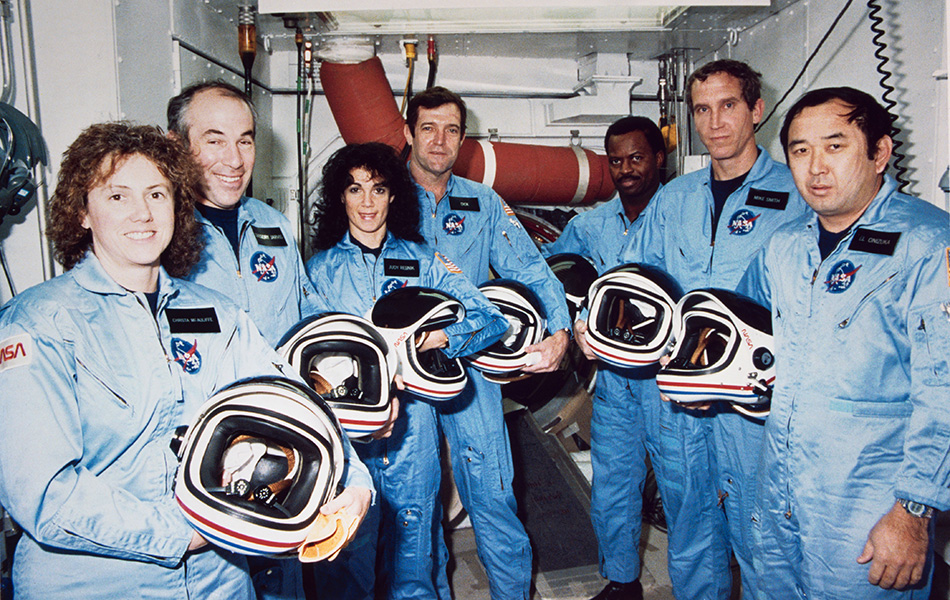The events of September 11, 2001 caused me to write an e-mail to a friend in which I said: “If there’s a silver lining to be found in all of this, it is that Americans will bond, and will return to civility.” I was right. For about two weeks.
We don’t yet know what brought about the horror in Tucson this weekend [the Gabby Giffords shooting]. It could easily be argued that insanity is the cause. But well-meaning people, seemingly from across the political spectrum, are using this occasion to make the statement: ‘We must return to civilized discourse.’ I want to believe respect and decency will be the ultimate result of the coming dialog, but I fear that I don’t believe. The lesson learned from 9/11 is still fresh in my mind.
Since the current thinking is political, I will offer these words as perspective. In January 2009, I wrote an essay that I ultimately chose not to publish. It focused on the vitriol of modern-day political campaigns. While campaigning is not the subject of this weekend’s events, some of these points resonate.
– – –
I’ve lost a friend.
My request had been an innocent one – I asked him to remove me from his political e-mail forward distribution list. “I get way too many e-mails”, I explained, “and have no time to read forwards. But do, please, keep me up on what’s happening with you and your lovely wife and kids.”
He replied almost immediately. “The reason you don’t want to read my e-mails is because I’m right and you know it.” I haven’t heard from him since. A twenty-five year friendship was finished.
Maybe it’s because we failed to maintain a more personal relationship after our careers sent us to different places. Our political viewpoints had always been dissimilar, but close proximity can soften the edge with which a point is driven. Or is it that, in recent election cycles, wedge issues, driving-up-the-negatives, and scurrilous opponent branding – lies – were weaved into our political / societal / campaign fabric.
Truth be told, these tactics are not recent at all.
In 1800, Thomas Jefferson endured a presidential campaign in which supporters of his opponent, President John Adams, labored mightily to convince the public that the then-vice president was an atheistic coward hell-bent on ripping Bibles from the homes of God-fearing Americans. A Jeffersonian writer, in turn, called Adams a “hideous hermaphroditical character which has neither the force and the firmness of a man nor the gentleness or sensibility of a woman.”
In later campaigns, Andrew Jackson’s wife was referred to as a woman of the night, and Abraham Lincoln was characterized as a baboon in as many creative ways as the opposition could imagine.
-- excerpted from “Negative Campaigning -- What's New?" by Larry J. Sabato, The Los Angeles Times 11/4/2008
Negative campaigning has continued since. In just my years of political awareness came the “Daisy ad” used by Lyndon Johnson against Barry Goldwater in 1964; the “Black baby of John McCain” slur in the George W. Bush primary campaign of 2000; the “Convention Ad” run by Richard Nixon against Hubert Humphrey in 1968, to cite but a few.
I think that the current generation of campaign operatives was fathered by Lee Atwater. In the 1980 Congressional campaign, Atwater planted a fake reporter in a press conference who asked about South Carolina Democratic nominee Tom Turnipseed’s mental illness. The now-adult candidate had, himself, spoken widely about his teenage struggles in the hope that others would benefit from his experience. But Atwater turned it into an insidious thing and did it with deceit.
Later, he ran a dirty tricks operation from the White House. His superior, Ed Rollins, wrote in 1996 that Atwater was “ruthless”, “Ollie North in civilian clothes”, and someone who “just had to drive in one more stake”. He would soon bring his skills to bear in the 1988 Bush/Dukakis campaign.
Massachusetts Democratic Governor Michael Dukakis’ predecessor had authored a furlough program for some of his state’s prisoners. Convicted murderer Willie Horton committed rape during a weekend furlough; this while Dukakis held the office. With candidate George H.W. Bush 17 points behind in the polls, Atwater asserted that he would “strip the bark off the little bastard” (Dukakis) and “make Willie Horton his running mate.” This, and other similar tactics, so raised Dukakis’ “negatives” that Bush won the election.
Karl Rove is a protégé of Nixon’s “dirty tricks” expert Donald Segretti (later convicted as a Watergate conspirator), and soon became tight with Lee Atwater.
If one word were used to define the result of Rove’s campaign and political tactics, it might be “divide.” Google “Karl Rove” + divide and you’ll find over 220,000 referenced articles from every political perspective. ‘Smear, polarize, defeat, and devour’ was effectively his mantra through the entirety of his career in campaign leadership. And Rove’s progeny were responsible for the 2008 McCain campaign.
I have made clear that the same tactics are being used by both parties. The stench is equally foul, no matter its source. Worse still, it extends now from the highest office to the lowest.
My now-lost friend subscribed to the talking points supporting his political leaning. He didn’t have to reason them through. He had only to receive them, agree with them automatically, and espouse them as his own. This, I think, is his (and, perhaps, our) greatest sin: to accept, unchallenged, the “facts” as they are fed to us.
We live busy lives. Two-income households, kids’ school and extra-curricular activities, our own professional, community and social activities. There just isn’t enough time in the day. Nevertheless, we make the time to do the things that are important. Such a thing is participation in the political process. If we don’t know what’s going on in some detail, the headlines will hold sway. Sound bites will be the basis for our decision-making. And these decisions could become sources of regret both in the near term and for future generations. The demagogues will have won.
Lee Atwater died of a brain tumor in 1991 at the age of 40. Call it a deathbed revelation if you must, but, by most accounts, Atwater came to understand the wrongness of his tactics. He spent the precious energy of his last days begging the forgiveness of those he had smeared. In Life Magazine (Feb.1991) he wrote:
“My illness helped me to see that what was missing in society is what was missing in me: a little heart, a lot of brotherhood. The country … can learn on my dime.”
– – –
If there’s a silver lining to be found in all of this, it is that Americans will bond, and will return to civility…..
 and they looked weird and nobody liked using them – so they didn’t. Two hundred years later,
and they looked weird and nobody liked using them – so they didn’t. Two hundred years later,
 ey have hidden microphones that face forward (unlike the last pair). They have some noise cancellation. They have push-button settings for female voices, male voices, and rock ‘n roll. Seriously! I can raise and lower the volume in either or both ears, take phone calls via Bluetooth, and they make my eggs-over-easy. Okay, not really that last part.
ey have hidden microphones that face forward (unlike the last pair). They have some noise cancellation. They have push-button settings for female voices, male voices, and rock ‘n roll. Seriously! I can raise and lower the volume in either or both ears, take phone calls via Bluetooth, and they make my eggs-over-easy. Okay, not really that last part.